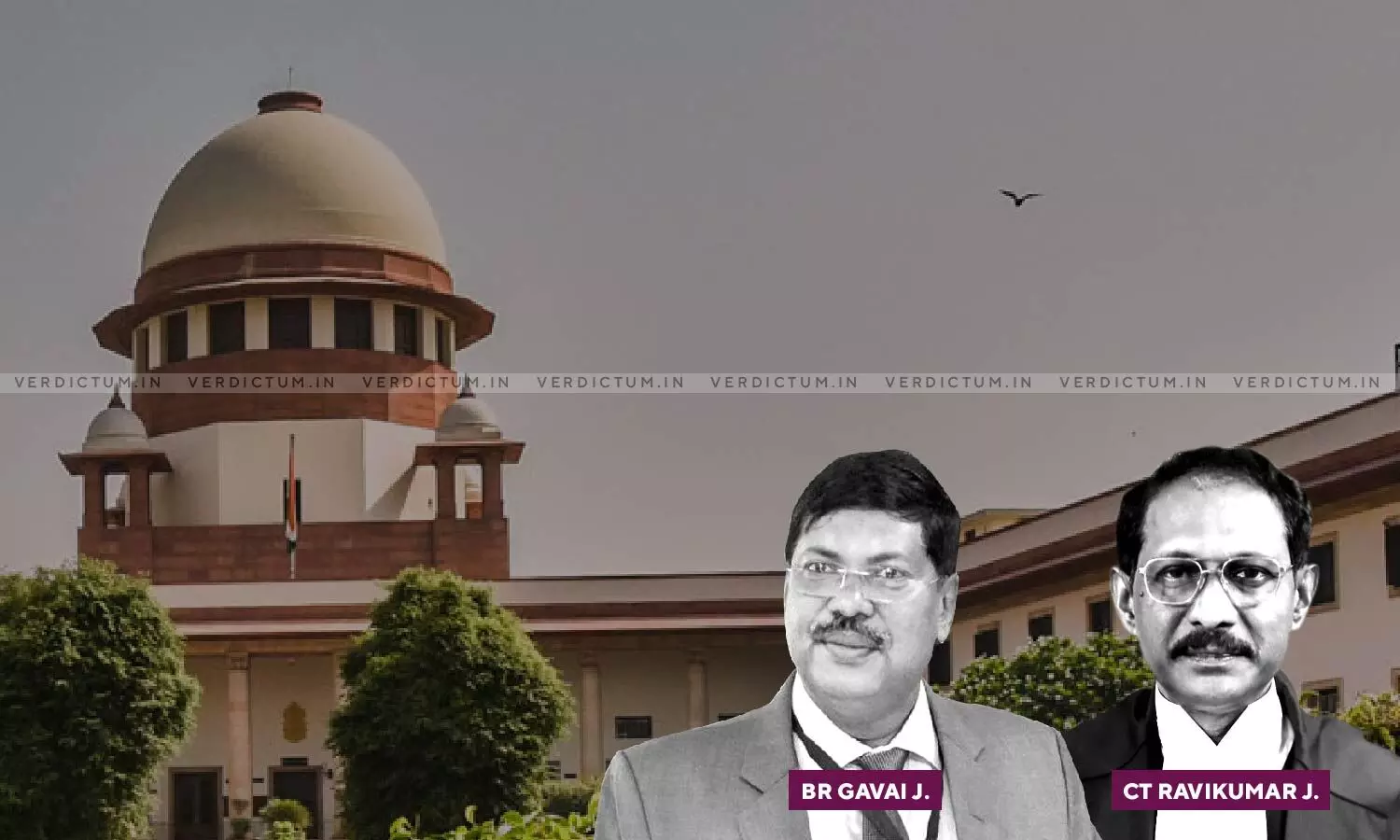
Judgment Or Decree Obtained By Fraud Is To Be Treated As A Nullity: Supreme Court Reiterates
 |
|The Supreme Court's bench of Justice BR Gavai and Justice CT Ravikumar has reiterated that a judgment or decree obtained by fraud is to be treated as a nullity.
The facts of this case were that one Kiran Devi-original writ petitioner was granted a licence for running a fair price shop. Various complaints were received with regard to malpractices committed by the said fair price shop dealer.
Upon site inspection, various irregularities and malpractices were found in the running of the said fair price shop. An inquiry was conducted by the sub-divisional officer who found the charges to be proved and as such, cancelled the Fair Price Shop licence of the original writ petitioner.
An appeal before the appellate authority came to be dismissed.
In the meantime, licence to run the said fair price shop was granted in favour of the present appellant-Ram Kumar.
Being aggrieved by the order passed by the Appellate Authority, the original writ petitioner preferred a writ petition before the High Court. The High Court allowed the writ petition.
Aggrieved, the appellant approached Supreme Court.
Advocate Udayaditya Banerjee appeared on behalf of the appellant and Advocate Irshad Ahmad, appeared on behalf of the original writ petitioner.
The Supreme Court observed that if a "necessary party" is not impleaded, the suit itself is liable to be dismissed.
The Court noted that the appellant was a necessary party to the proceedings before the High Court. The Court held that the present appeal deserved to be allowed on this ground but the Court noted that there was another serious ground on which the present appeal deserves to be allowed.
The Court observed "It could thus be seen that, though respondent No.9 (original writ petitioner) was very well aware that during the pendency of the proceedings before the Appellate Authority, an allotment was done in favour of the present appellant, she has averred in her writ petition that no third party allotment was made. She has further gone on to state that, as per the directions of the High Court, the fair price shop of respondent No.9 was attached to another fair price shop holder. The statement is factually incorrect to the knowledge of respondent No.9."
The Court noted that the writ petitioner had tried to mislead the High Court.
"This Court, in the case of S.P. Chengalvaraya Naidu (Dead) By LRs. Vs. Jagannath (Dead) by LRs and others has held that non-disclosure of the relevant and material documents with a view to obtain an undue advantage would amount to fraud. It has been held that the judgment or decree obtained by fraud is to be treated as a nullity. We find that respondent No.9 has not only suppressed a material fact but has also tried to mislead the High Court. On this ground also, the present appeal deserves to be allowed.", the Court held.
Accordingly, the Court set aside the impugned Order passed by the High Court. The Court affirmed the order passed by the Deputy Collector, Rasoolabad cancelling the Fair Price Shop licence of Kiran Devi-original writ petitioner and order passed by the Additional Commissioner (Judicial), Kanpur Division, Kanpur dismissing the appeal of original writ petitioner.
Cause Title- Ram Kumar v. State of Uttar Pradesh and Ors.
Click here to read/download the Judgment